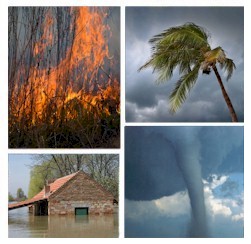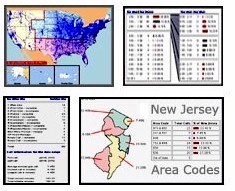|
|


Emergency Alert Systems
 This section of our technical library presents articles written about Emergency Alert Systems and Disaster Recovery definitions, terms and related information.
This section of our technical library presents articles written about Emergency Alert Systems and Disaster Recovery definitions, terms and related information.
The 911Broadcast emergency notification and alert service can deliver a large number of phone calls using a network of phone systems employing digital phone lines simultaneously. Should a disaster such as a snow storm, wild fire or flood hit your area, 911Broadcast systems can alert your community quickly providing specific instructions if an evacuation is required.
This service is available using our emergency broadcasting systems. If a dangerous chemical spill occurs in your community, you can target specific areas to call. If a severe snow storm hits your area, your community can be notified of school closings or event cancellations.
Hurricane preparedness
Written by Kerry-Ann Morris
Tips for householders to be prepared for the hurricane season
Hurricanes have been described as "The Greatest Storms on Earth", and they kill more people than any other natural event. Although they cannot be controlled, with adequate warning and the observance of safety precautions, lives and property cane be saved.
Householders need to be aware of the potential threat that a hurricane and its associated hazards have on the lives of their loved ones. As such they need to take special precautiuons to combat or lessen these threats. The following tips highlight some precautions that householders can take.
1. Listen to official warnings and advice and follow instructions given. Discuss the situation calmly with your family, particularly with young children. Your ability to be calm will reassure them. Involve all family members in precautionary activities as this will help preserve calm.
2. Make a thorough check of hurricane shutters, hooks and latches and repair where necessary.
3. Secure all loose items around the house, i.e., pans, sticks, garden tools, garbage cans, signs, porch furniture, awnings and other objects, which might form possible weapons during the onslaught of hurricane winds.
4. Keep on hand nails, hammers, wire, rope amd pliers.
5. Stock up on plastic bags and sheets of plastic. Plastic is essential to prevent important documents, paintings, equipmemt and furniture from getting wet.
6. Trim trees that touch power lines or hang over the house and other buildings.
7. Latch down securely all small buildings in the yard such as tool sheds, barns, etc. If you do not know how to do this, ask a qualified carpenter for assistance.
8. Store extra food, especially things that can be eaten without cooking or which need very little preparation. Remember, during a hurricane electric power may be off and you may be without refridgeration. Place emergency food supply in a waterproof container and store in a closed box, cupboard or trunk.
9. Make sure you have emergency equipment such as waterboots, raincoats, flashlights, batteries, battery-operated radios (portable radios), kerosene lamps and matches, in your home. Have simple first-aid equipment, etc., at home.
10. Keep handy a supply of lumber, plywood, timber, etc., for battering up purposes.
11. Know how to find the nearest shelter. Each community often has a designated shelter. It is most important that families know the location of the nearest shelter, which may be necessary to go to in case of a serious hurricane threat. You must plan for the safety of your family.
12. Plan a safe route if you must leave. You must plan early the safest possible route to the nearest safe shelter. If evacuation is to take place during peak traffic then evacuation time will be longer, so leave early.
13. Check personal property. This is necessary to recover losses. Do not trust your memory. List descriptions and take pictures. Store these and other important papers, such as birth certificates, passports, titles, insurance contracts, etc., in a safe place.
14. Check insurance coverage. Meet with your insurance agent and go over your policies and coverage to avoid misunderstanding. Make sure your property is properly valued and insured for its true value. If your property is undervalued at the time of a hurricane, you will end up with less money for repairs than you may have expected.
If all of these tips are taken into consideration and put into practice for an upcoming hurricane season, then households will be much more prepared for the threat that a hurricane poses to householders.
Our Service Is Activated Online Or By Phone
 The 911 emergency broadcast service is easy to install and use. We help you collect community call lists and organize them in a fashion that best fits your emergency broadcast requirements. When an emergency arises, you simply record your emergency message offline or use our toll free phone service to record your message.
Next identify your call recipients using a simple list manager or a graphical map display and send us your phone numbers via the internet. You can also identify pre-defined lists to call using simple touchphone responses on our toll free service. We do the rest.
Unlike some systems that are limited by the number of lines available to perform this emergency dialing, our service is provided to you using a network of thousands of phone lines that can deliver your emergency messages much faster.
Our emergency notification system delivers messages to individuals or answering machines and can even allow the call recipient to make touchphone selections. This may be critical if your response center requires a positive acknowledgement from the call recipient.
The 911 emergency broadcast service is easy to install and use. We help you collect community call lists and organize them in a fashion that best fits your emergency broadcast requirements. When an emergency arises, you simply record your emergency message offline or use our toll free phone service to record your message.
Next identify your call recipients using a simple list manager or a graphical map display and send us your phone numbers via the internet. You can also identify pre-defined lists to call using simple touchphone responses on our toll free service. We do the rest.
Unlike some systems that are limited by the number of lines available to perform this emergency dialing, our service is provided to you using a network of thousands of phone lines that can deliver your emergency messages much faster.
Our emergency notification system delivers messages to individuals or answering machines and can even allow the call recipient to make touchphone selections. This may be critical if your response center requires a positive acknowledgement from the call recipient.
Purchase Or Outsource?
This is a question that communities should carefully consider. A purchased system gives you more control, but requires sufficient phone lines, equipment and on site technical knowledge to keep your system operational. The larger your community, the greater capital expense is required to broadcast your emergency messages in a timely fashion. If your message broadcasting system is used for more than just emergencies, it is easier to justify a purchase over contracted service. After all, emergency phone broadcasting is something you hope you never need to use.
Contracting your emergency broadcasting service requires less up front capital and can provide a faster emergency broadcast response if your provider has the resources available. Other than a monthly subscription fee, you only pay for the emergency broadcast as it occurs. System redundancy is available as well as centralized and experienced technical assistance.
|




 This section of our technical library presents articles written about Emergency Alert Systems and Disaster Recovery definitions, terms and related information.
This section of our technical library presents articles written about Emergency Alert Systems and Disaster Recovery definitions, terms and related information.
 The 911 emergency broadcast service is easy to install and use. We help you collect community call lists and organize them in a fashion that best fits your emergency broadcast requirements. When an emergency arises, you simply record your emergency message offline or use our toll free phone service to record your message.
Next identify your call recipients using a simple list manager or a graphical map display and send us your phone numbers via the internet. You can also identify pre-defined lists to call using simple touchphone responses on our toll free service. We do the rest.
Unlike some systems that are limited by the number of lines available to perform this emergency dialing, our service is provided to you using a network of thousands of phone lines that can deliver your emergency messages much faster.
Our emergency notification system delivers messages to individuals or answering machines and can even allow the call recipient to make touchphone selections. This may be critical if your response center requires a positive acknowledgement from the call recipient.
The 911 emergency broadcast service is easy to install and use. We help you collect community call lists and organize them in a fashion that best fits your emergency broadcast requirements. When an emergency arises, you simply record your emergency message offline or use our toll free phone service to record your message.
Next identify your call recipients using a simple list manager or a graphical map display and send us your phone numbers via the internet. You can also identify pre-defined lists to call using simple touchphone responses on our toll free service. We do the rest.
Unlike some systems that are limited by the number of lines available to perform this emergency dialing, our service is provided to you using a network of thousands of phone lines that can deliver your emergency messages much faster.
Our emergency notification system delivers messages to individuals or answering machines and can even allow the call recipient to make touchphone selections. This may be critical if your response center requires a positive acknowledgement from the call recipient.